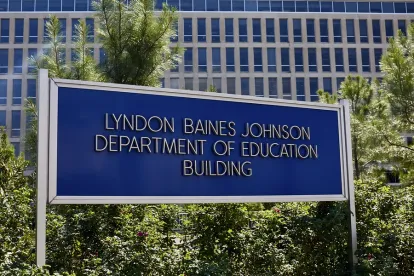The Title IX regulations that went into effect in August 2020 significantly narrowed the scope of conduct that the United States Department of Education Office of Civil Rights (“OCR”) defined as violating Title IX, the broad law prohibiting sex or gender discrimination in education. These regulations have the force of law.
Carved out of Title IX coverage was potentially a vast amount of sexual misconduct that could have detrimental impacts on the campus work and academic environment. The new regulations excluded from Title IX protection off-campus conduct, conduct occurring in study abroad programs, and sexual harassment of employees under Title VII which does not satisfy the new narrower definition of Title IX sexual harassment.
This remarkable erosion of coverage left colleges and universities analyzing whether they could, should, must, or wanted to address this excluded sexual misconduct conduct. Just as importantly, many schools were left asking how they could lawfully do so without violating the Title IX regulations.
On January 15, 2021, the OCR published “Part 1: Questions and Answers Regarding the Department’s Title IX Regulations” which helps to provide some guidance on these questions.
Through the guidance, OCR answers some of the questions schools have been grappling with as follows:
Q. May we address sexual misconduct falling outside of Title IX?
A. Yes. OCR explains that Title IX is not the exclusive remedy for schools to address sexual misconduct and makes clear that schools are required to dismiss non-Title IX sexual misconduct only “for the purposes of Title IX” proceedings. OCR explained that the use of other disciplinary processes to address such conduct is indeed appropriate.
Q. Must we?
A. It depends. For some conduct that is unlawful under other non-discrimination laws like Title VII, schools must response and must have a complaint and resolution process. For other conduct, even where there is no legal requirement, schools may have a mission-based rationale for responding.
Q. Should we? Shall we?
A. The answers to these questions will come from an institutional analysis, driven by legal obligations, culture, history and mission. This OCR guidance leaves the door open for institutions to engage in this type of analysis in setting up its systems to address non-Title IX sexual misconduct. Interestingly, the OCR expressly approved of, but did not require, the use of parallel procedures that correspond with a school’s Title IX process.
After this guidance, schools can rest assured that they can address non-Title IX sexual misconduct through other processes, that they can lawfully make those processes consistent with their Title IX processes.
One final, but important, note: schools would be well advised to state the purpose of their parallel processes so that it is clear that their purpose is not to interfere with Title IX rights. Such language could help avoid or rebut a Title IX retaliation claim under 34 C.F.R. 106.71(a).



 />i
/>i

